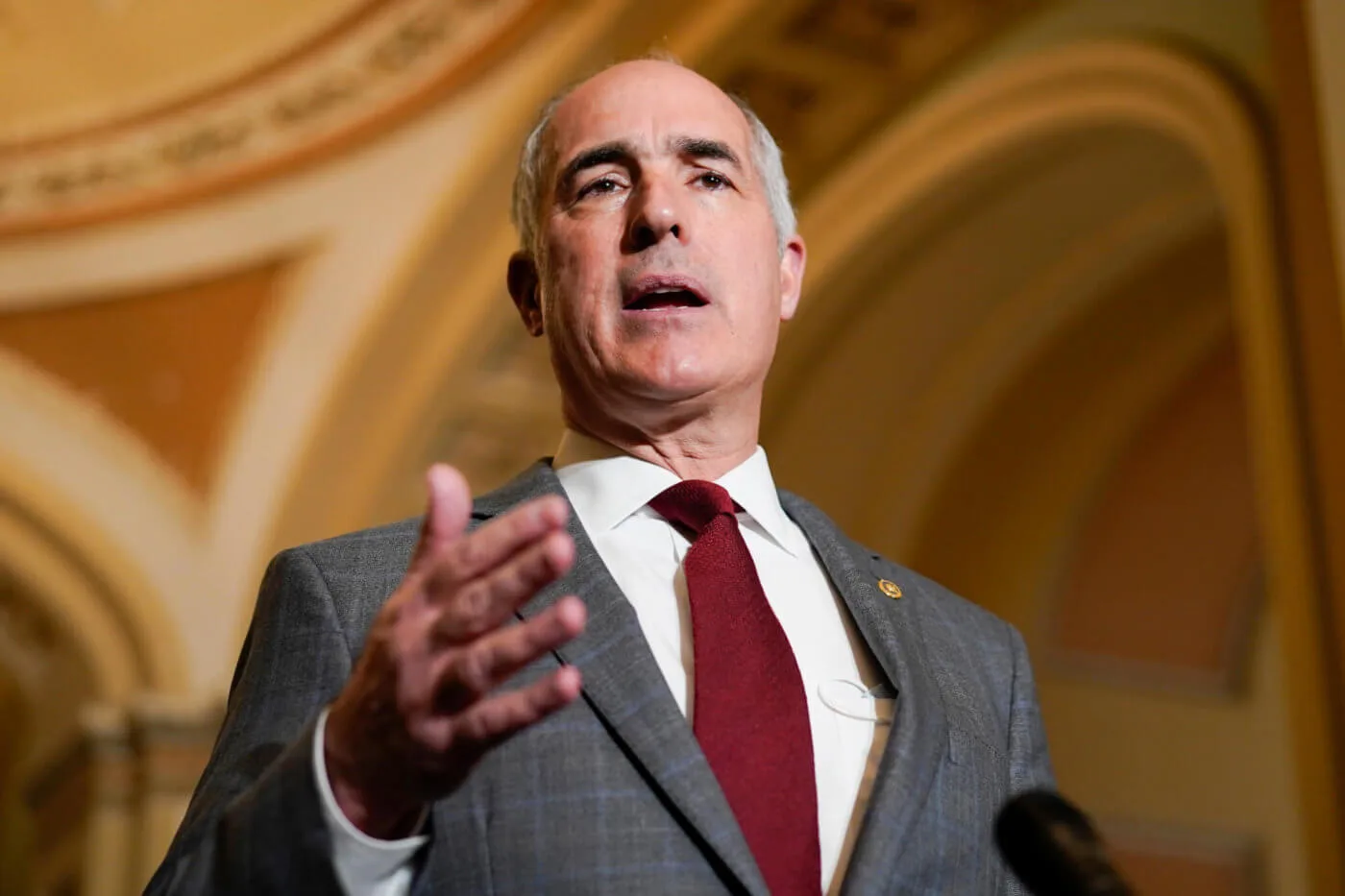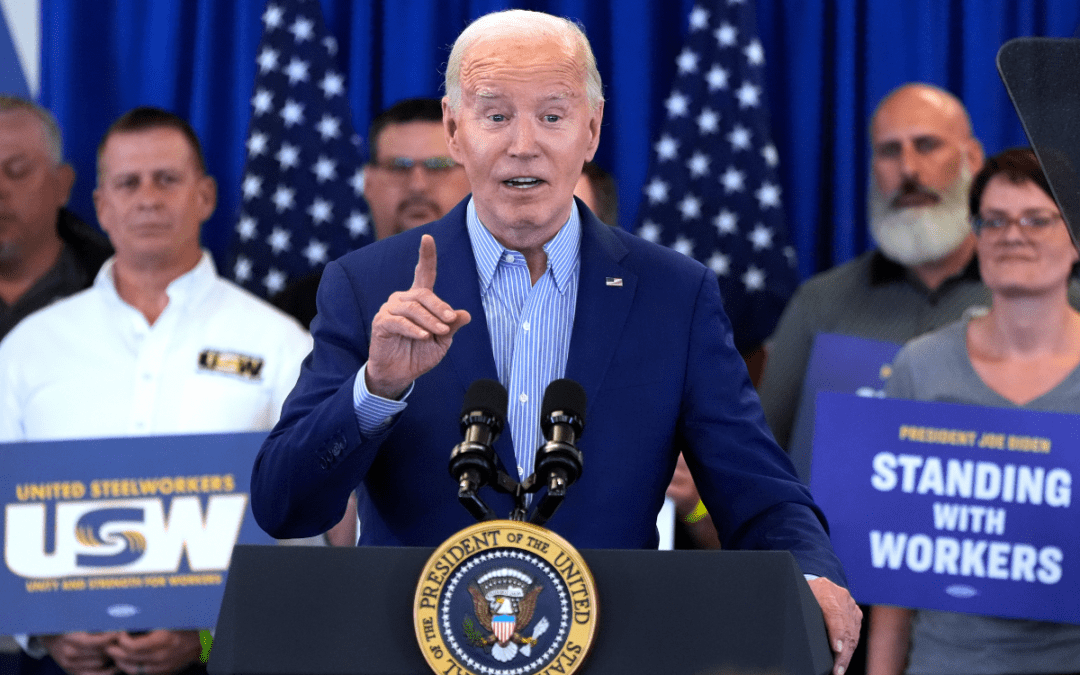
Sen. Bob Casey, D-Pa., speaks during a news conference on Capitol Hill in Washington, Tuesday, Dec. 7, 2021.(AP Photo/Carolyn Kaster)
Pennsylvania’s US Senators voted along party lines on a bill that would deliver much-needed protection of voting rights.
After successfully passing in the House last summer, a push by US Senate Democrats to protect voting rights came up short on Wednesday.
Democrats were unable to garner the 60 votes needed to pass The Freedom to Vote: John R. Lewis Act. And when Democrats Kyrsten Sinema of Arizona and Joe Manchin of West Virginia voted with Republicans in thwarting an effort to change the Senate filibuster rules, the Democrats’ bid to pass the legislation with just a simple majority, not the customary supermajority of 60 votes, fell short as well.
Pennsylvania’s senators, Democrat Bob Casey and Republican Pat Toomey, voted along party lines in both instances.
Casey expressed his frustration over the bill’s failure to pass on social media.
Casey also issued the following statement: “It’s disappointing to see my Republican colleagues continue to block legislation to protect the fundamental right to vote. The fight for our democracy is not a hypothetical one. In state legislatures across the country, Republican officials who perpetuate the former President’s Big Lie are working to restrict access to the ballot and make it harder for Americans to have a voice in their government. Inaction is not an option. I am committed to doing everything I can to pass legislation to protect the right to vote, including reforming the Senate rules to overcome Republican obstruction.”
Why The Freedom to Vote: John R. Lewis Act is Necessary
The John R. Lewis Act is an urgently needed response to what voting advocates say is an effort by Republican-led states to make it harder for Black Americans and others to vote through the consolidation of polling locations, identification requirements, and other changes.
The bill would make Election Day a national holiday, ensure access to early voting, allow all voters to cast ballots by mail, and enable the Justice Department to intervene in states with a history of voter interference. The bill included provisions for national automatic voter registration. It also would have banned partisan gerrymandering of voting districts.
With countless Republicans still amplifying Donald Trump’s baseless claims of voter fraud in the 2020 election, states able to change their voting laws without federal approval, and Republican-controlled state legislatures like Pennsylvania’s using taxpayer money to conduct unnecessary audits of private voter information, the John R. Lewis Act could go a long way toward preserving an eroding democracy.
What Now?
The final vote on the John R. Lewis Act was 51 to 49, after majority leader Chuck Schumer (D-New York) voted with Republicans, a procedural vote to ensure the bill will be reconsidered later.
President Joe Biden said he was “profoundly disappointed” the voting rights act didn’t pass the Senate, and vowed to “explore every measure and use every tool at our disposal to stand up for democracy.”
What the future holds for the John R. Lewis Act, or similar legislation, heading into an important midterm election, particularly in Pennsylvania, remains to be seen.
Information from the Associated Press was used in this report.
Politics

Biden announces tariffs on Chinese Steel while visiting United Steelworkers members
“I'm president because of you guys. I really am and I'm proud. As was mentioned earlier, I'm proud to be the most pro-union president in American...

Opinion: Is Reproductive Healthcare just a women’s issue?
In this op-ed, Pennsylvania resident Lynn Strauss discusses the Republican Party’s conflicting stance on reproductive healthcare policy and the...

2 top US gun parts makers agree to temporarily halt sales in Pennsylvania
Philadelphia filed suit against Polymer80 and JSD Supply last year, accusing the manufacturers of perpetuating gun violence by manufacturing ghost...
Local News

Conjoined twins from Berks County die at age 62
Conjoined twins Lori and George Schappell, who pursued separate careers, interests and relationships during lives that defied medical expectations,...

Railroad agrees to $600 million settlement for fiery Ohio derailment, residents fear it’s not enough
Norfolk Southern has agreed to pay $600 million in a class-action lawsuit settlement for a fiery train derailment in February 2023 in eastern Ohio,...






